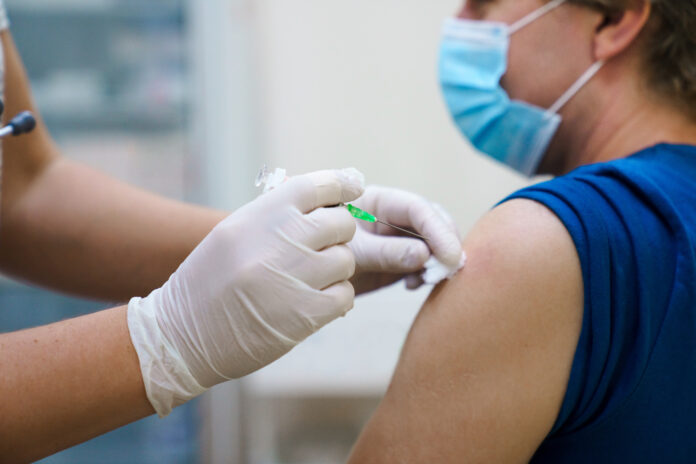The Philadelphia Department of Public Health announced that five local health clinics have been allocated doses of monkeypox vaccine for distribution to individuals at high risk for exposure. The clinics are Mazzoni Center, Philadelphia FIGHT, Presbyterian Hospital, Drexel Partnership, and Penn Medicine. Each clinic is reaching out to specific patients for vaccination. At this time, walk-in appointments are not available.
For people who are at high risk and/or who may have been exposed to monkeypox but are not patients of the five clinics, the health department states on their website that they are “encouraged to call the Health Department’s Call Center at 215-685-5488. The call takers will review eligibility and set a vaccine appointment if eligible.” The health department noted that people who are experiencing symptoms of monkeypox or have been diagnosed with monkeypox cannot be vaccinated.
Philadelphia received 1,605 vaccine doses last week and is set to receive 1,020 additional doses, 6ABC reported. As of July 26, there were 3,487 confirmed cases of monkeypox in the U.S., with 84 in Pennsylvania. Those numbers have risen steadily since May. Thus far, no deaths from monkeypox have been reported in the U.S.
According to the latest health department guidelines, individuals are at high risk for monkeypox exposure if they meet the following criteria:
- Gay, bisexual, transgender, non-binary, and other men aged 18 or older who have sex w/men, transgender, or non-binary persons.
- Have had multiple or anonymous sex partners in the last 14 days and/or believe they may have been exposed to an STI or monkeypox in the past 14 days, AND/OR have had any newly diagnosed STI in the past 3 months, including gonorrhea, chlamydia, early syphilis, or HIV.
“Monkeypox is a growing threat in the LGBTQ community,” Colman Terrell, director of the Health Department’s Division of Disease Control, said in a press release. “Being vaccinated is one of the best ways to protect yourself and your partner and community. We are eagerly awaiting more vaccine to be delivered so we can continue to offer it to more people. In the meantime, we continue to encourage individuals to make the safest choices and have open conversations with their partners.”
The city is taking lessons learned from Covid-19 vaccination to offer a more targeted approach to those who are most at risk for monkeypox.
“During the COVID-19 vaccine program, we learned that opening vaccine clinics to everyone meant that only those who were internet-savvy and had time to spare would get their vaccines first,” the health department website states. “People who really needed the vaccine could not get it or had to wait in long lines. By limiting who gets vaccine to those at the highest risk of getting monkeypox, we know that the vaccine will get to those most in need right away.”
While there are two types of monkeypox vaccines, Philadelphia has received the JYNNEOS vaccine, which is administered in two doses but still provides some protection after one dose.
In addition to vaccination, additional steps people can take to protect themselves include discussing monkeypox with partners and potential partners before having close contact. Questions suggested by the health department include ”Have you been around someone who had monkeypox?” “Are you feeling sick?” “Do you have a rash or lesions on your body?”
Monkeypox spreads through close, personal contact, including touching the rash, scabs or lesions of someone who has monkeypox; kissing, cuddling, or having sex with someone who has monkeypox; touching clothes or bed sheets that have touched the rash or fluids of someone who has monkeypox; and from a pregnant person to their fetus.
Initial symptoms of monkeypox can include flu, fever, and swollen lymph nodes, but not everyone may experience them. Within a couple weeks of being exposed, individuals will see a rash or lesions which look like bumps show up on the body, including the face, mouth, or around the genitals or anus. The lesions can be easily visible or subtle. In some instances, the lesions can be very painful.

People with monkeypox can give it to other people while they have a rash or lesions and until the lesions have scabbed over, fallen off, and new skin has grown back. It can take up to a month for all of those things to happen.
While anybody can get monkeypox, “the current outbreak of monkeypox has been found more often in men who have sex with men who have had multiple partners in the past few weeks,” according to the health department.
A July 21 study published in the New England Journal of Medicine found that of 528 infections in 16 countries, “98% of the persons with infection were gay or bisexual men,” and that “Transmission was suspected to have occurred through sexual activity in 95% of the persons with infection,” with 73% of persons having anogenital lesions.

